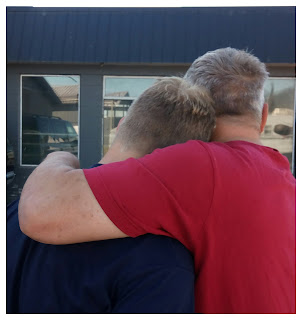Here we are again, I thought practice would make me better at this. It has not.
Time is my enemy and my friend.
Moments give me precious memories.
Yet they feel all too fleeting.
I feel like I have all the time in the world, and yet not enough.
Our first born boy is off.
Making his way.
Testing new waters.
Time is my enemy and my friend.
Moments give me precious memories.
Yet they feel all too fleeting.
I feel like I have all the time in the world, and yet not enough.
Our first born boy is off.
Making his way.
Testing new waters.
It is magnificent.
And yet my heart hurts.
A few years ago the Dave Mathews Band wrote a song You & Me. It resonated deeply and immediately I felt like it was “our song” for the next season of life. Craig and I had never had a song, and it felt cheesy, so I never said anything.
Here is the chorus and bridge:
Oh, and when the kids are old enough
We're gonna teach them to fly
You and me together
We can do anything, baby
We can always look back at what we did
Always memory of you and me, baby
Right now, it's you and me forever, girl
And you know we can do better than anything I would do
You know that you and me, we could do anything
Let me be clear, without God, we could not have done this hard thing called raising children. If I am clinging to God and because of God's goodness to me, I have Craig by my side, I can do anything. It is a miracle Quin made it to 18. I cannot tell you how seriously I mean this.
It seems like yesterday I heard this song for the first time and we were years from teaching our kids how to fly and now here we are.
What's more is, this isn't our first time!!
 Now, if you are not the same as me and launching your kid is sweet joy and pleasure for you, embrace it. Love it and do not question it. There is nothing wrong with that at all! We are not all alike and neither are we meant to be.
Now, if you are not the same as me and launching your kid is sweet joy and pleasure for you, embrace it. Love it and do not question it. There is nothing wrong with that at all! We are not all alike and neither are we meant to be. It is bittersweet for me.
I am 90% relational and 10% get stuff done. I love having my kids around.
Quin has been our joy and our action. He has kept us on our toes. He has shaped my character immensely and given us such sweet laughter and challenge. He has humbled us and made us better.
Everything Quin does is wholehearted and he drives us to fully engage. Oh the stories we have!
He, like every other child, will leave a big, wide, gaping hole. His place is unique in our family. His strengths and weaknesses fill a particular void. He is our song and our dance.
It is hard to imagine our home and family without his interesting conversation and lively teasing.
In short.
 I miss my boy.
I miss my boy.It is good and it is right.
It will be so amazing to watch him continue to grow and become the person he is meant to be.
He never fails to surprise and delight us. It is going to be incredible supporting him in the next stage of our journey.
By the grace of God we got him to 18 alive and by the grace of God he is an amazing kid who is kind, hard working, musical, academic and fun loving.
We are so proud and yet know our part was small.
Quin, you have taught us more than we ever taught you and we are head over heels for you kid!
Give it all you've got! We are always and forever in your corner, cheering, believing in you, grinning ear to ear. What a ride!
Oh, and when the kids are old enough
We're gonna teach them to fly
You and me together, we can do anything..













